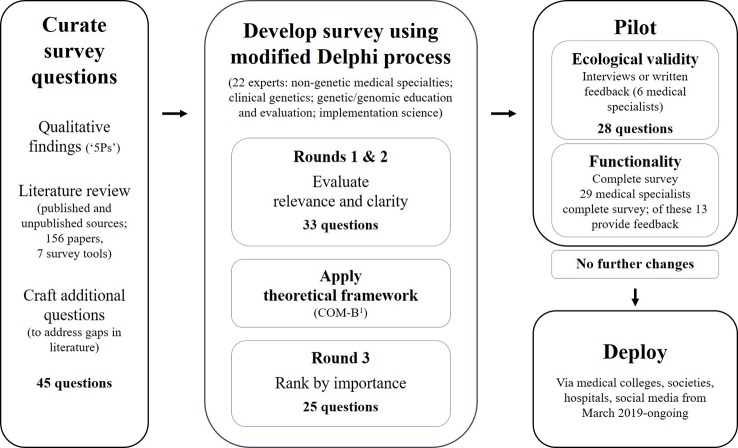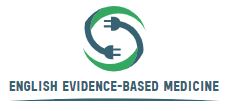Development of an Evidence-Based, Theory-Informed National Survey of Physician Preparedness for Genomic Medicine and Preferences for Genomics Continuing Education.
Despite some early implementation of genomic drugs globally, there’s a lack of rigorous, large-scale assessments of medical specialists’ present observe and persevering with schooling wants.
As a primary step to addressing this hole, we describe the event of a sturdy, expert-reviewed, survey utilizing a mixed-methods sequential research design. We performed semi-structured qualitative interviews with 32 schooling suppliers and 86 non-genetic medical specialists about present genomic drugs observe and want for persevering with schooling.
Key ideas had been recognized and used as an preliminary framework for the survey. These had been: private traits (medical specialty, years of observe); present observe of genomics in scientific and analysis settings; notion of how proximal genomic drugs is to observe; notion of preparedness (competence and confidence); and, preferences for future roles and fashions of care in genomic drugs and for persevering with schooling.
Potential survey questions that associated to at the very least one of these ideas had been recognized from the literature or had been created if no appropriate query existed. Using a modified, reactive Delphi strategy, questions had been reviewed by a panel of 22 consultants.
Experts had been chosen purposefully representing 4 areas of experience: non-genetic medical specialties; scientific genetics; genetic/genomic schooling and analysis; and implementation science.
Three Delphi rounds assessed relevance, readability and significance of every query. The questions had been additionally mapped to the behaviour change wheel theoretical framework which encompasses functionality, alternative and motivation (COM-B). The survey (included as supplementary materials) was then examined with a small group of non-genetic medical specialists and suggestions was written or verbal in ‘talk-aloud’, cognitive interviews. The remaining survey was then piloted with an extra 29 specialists.
We describe the methodology to create a sturdy, data- and theory-informed survey. The remaining survey captures not solely ranges of expertise, observe of genomics and preferences for schooling but additionally the challenges round participating with schooling. Survey knowledge will present proof for schooling suppliers to tell improvement of schooling which meets learner wants and contributes to a medical workforce that’s literate in genomics and extra assured to competently observe genomic drugs.

Closed-Loop Brain Stimulation for Drug-Resistant Epilepsy: Towards an Evidence-Based Approach to Personalized Medicine.
Closed-loop mind stimulation is one of the few remedies obtainable for sufferers who’re ineligible for conventional surgical resection of the epileptogenic zone, attributable to having generalized epilepsy, multifocal epilepsy, or focal epilepsy localized to an eloquent mind area.
Due to its scientific efficacy and potential to supply personalised remedy primarily based on an particular person’s personal intracerebral electrophysiology, this remedy is turning into an essential half of scientific observe, regardless of a restricted understanding of find out how to program detection and stimulation parameters for optimum, patient-specific profit.
To deliver this problem into focus, we evaluation the evolution of neural stimulation for epilepsy, present a technical overview of the RNS System (the one FDA-approved closed-loop system), and focus on the main challenges of working with a closed-loop system. We then suggest an evidence-based answer for individualizing remedy that’s pushed by a bottom-up informatics strategy.
